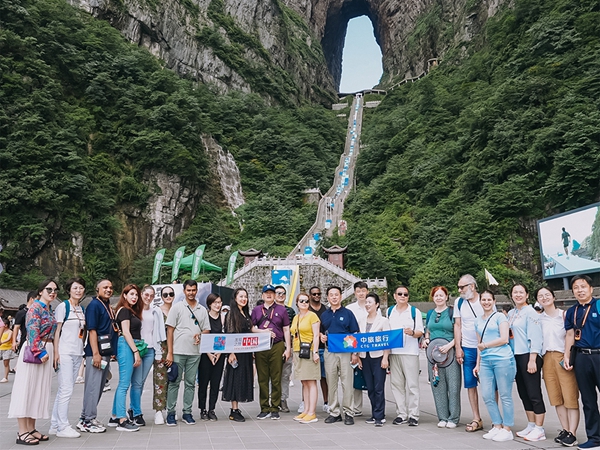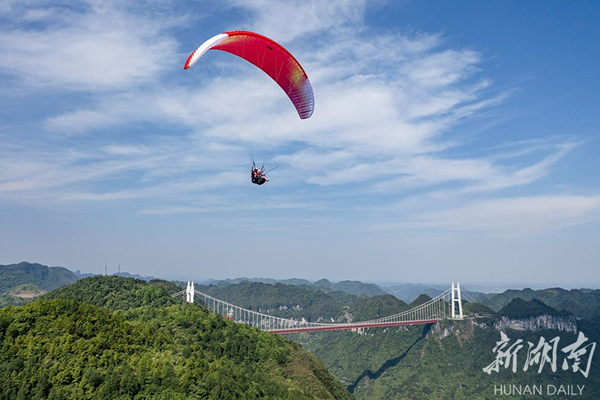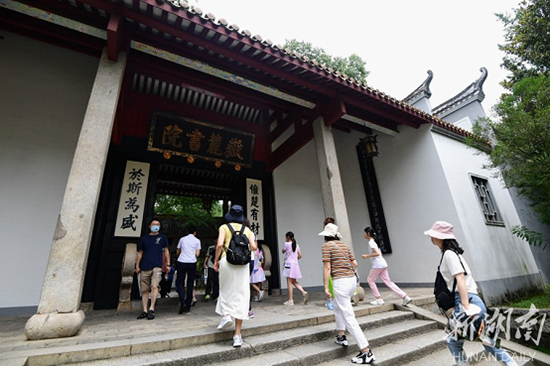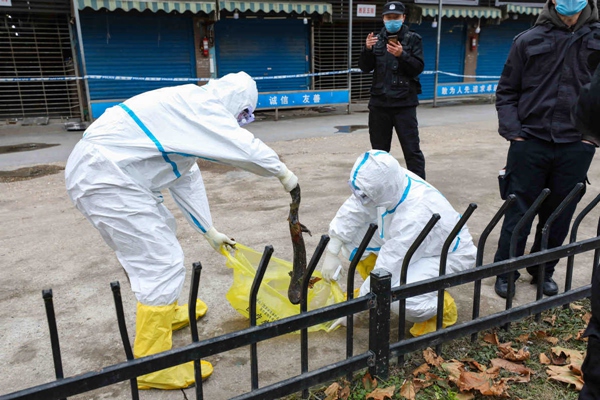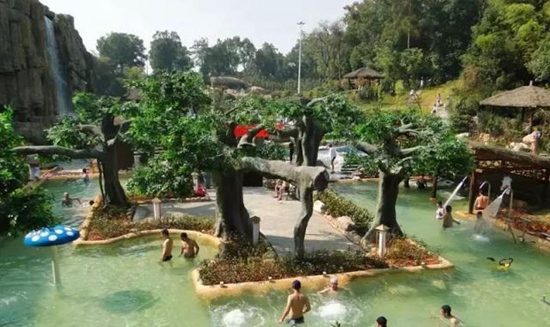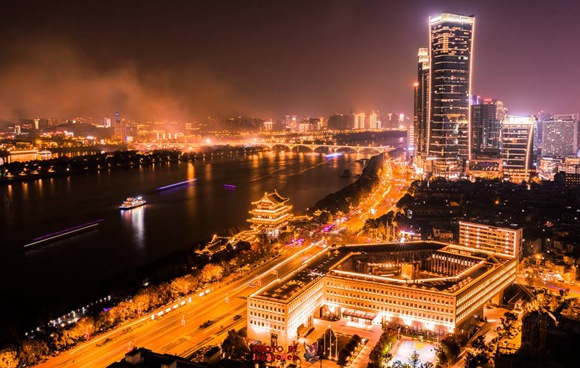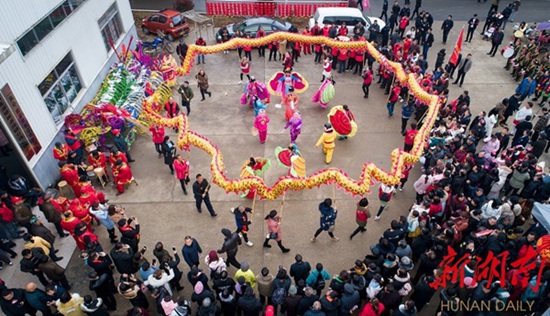(Adopted at the 16th Meeting of the Standing Committee of the Eighth National People's Congress on Octoder 30, 1995, promulgated by Decree No. 59 of the President of the People's Republic of China on October 30 ,1995 and effective as of the date of promulgation)
Chapter I General Provisions
Artiele 1 The Law is promulgated for the purpose of ensuring food hygiene, preventing food contamination and harmful substances from injuring human health, safeguarding the health of the people and improving their physical fitness.
Article 2 The State adopts a system of food hygiene supervision.
Article 3 The administrative department of public health under the State Council shall be in chargd of supervision and control of food hygiene throughout the country. Other relevant departments under the State Council shall, within the scope of their respective functions and terms of reference, be responsible for control of food hygiene.
Article 4 Whoever engages in food production or marketing within the territory of the People's Republic of China must observe the Law. The Law applies to all kinds of foods, food additives, containers,packagings, utensils and equipment used for food, detergents and disinfectants; it also applies to the premises, facilites and environment associated with food production or marketing.
Article 5 The State encourages and protects the social supervision exercised by public organizations and individuals over food hygiene. Any person shall have the right to inform the authorities and lodge a complaint adout any violation of the Law.
Chapter II Food Hygiene
Article 6 Food shall be nontoxic and harmless, in conformity to proper nutritive requirements and have appropriate sensory features such as colour, fragrance and taste.
Article 7 Principal and supplementary foods intended specially for infants and preschool children shall conform to the nuritive and hygienic standards promulgated by the administrative department of public health under the State Council.
Article 8 In the process of food production and marketing, the requirements for hygiene stated below shall be conformed to :
(1) The environment inside and outside any food production or marketing establishments shall be kept clean and tiby; measures shall be taken to eliminate flies, rodents, cockroaches and other harmful insects and to remove conditions for their propagation; and a prescribed distance shall be kept from any toxic or harmful site;
(2) An enterprise engaged in food production and marketing shall have workshops or other premises for the preparation of raw materials and for processing, packing and storage that are commensurate with the varieties and quantities of the products handled;
(3) Appropriate facilities shall be made available for disinfection, changing clothes, toilet, natural and artificial light, ventilation prevention of spoilage, protection against dust, elimination of flies and rodents, washing of equipment, sewage discharge and the containment of garbage and other wastes;
(4) The layout of installations and the application of technological processes shall be rational in order to prevent contamination between foods to be processed and ready-to-eat foods, and between raw materials and finished products; food must not be placed in contact with any toxic substance or filth;
(5) Tableware, kitchenware and containers for ready-to-eat foods must be cleaned and disinfected prior to use; cooking utensils and other utensils must be washed after use and kept clean;
(6) Any containers, packagings, utensils and equipment used for the storage, transportation, loading and unloading of food as well as the conditions under which these operations are carried out must be safe, harmless and kept clean in order to prevent food contamination;
Chapter III Hygiene of Food Additives
Article 11 The production, marketing and use of food additives must conform to the hygiene standards for use of food additives and the hygiene control regulations; the food additives that do not conform to the hygiene standards and the hygiene control regulations may not be marketed and used. Chapter IV Hygiene of Containers, Packagings, Utensils and Equipment Used for Food
Article 12 Containers, packagings, utensils and equipment used for food mustconform to the hygiene standards and the hygiene control regulations.
Article 13 The raw materials for making containers, packagings, utensils and equipment used for food must meet hygiene requirements. The finished products should be easy to clean and disinfect. Chapter V Formulation of Food Hygiene Standards and Regulations for Food Hygiene Control.
Article 14 The administrative department of public health under the State Council shall formulate or approve and promulgate the national hygiene standards, hygiene control regulations and inspection procedures for food, food additives, the containers, packagings, utensils and equipment used for food , the detergents and disinfectants used for washing food or utensils and equipmert used for food , and the tolerances for contaminants and radioactive substances in food.
Article 15 If the State has not formulated hygiene standards for a certain kind of food, the people's governments of the provinces, autonomous regions, or municipalities directly under the Central Government may establish local hygiene standards for that food and report them to the administrative department of public health under the State Council and the competent standardization administration department under the State Council for the record.
Article 16 Norms of significance to the science of health in the national quality standards for food additves must be examined and approved by the administrative department of public health under the State Council. Appraisals on the safety for use of agricultural chemicals, such as pesticides and chemical fertilzers, shall be examined and approved by the administrative department of public health under the State Council. Veterinary hygiene inspection procedures for slaughtered livestock and poultry shall be formulated jointly by the relevant administrative departments under the Statd Council and the administrative department of public health under the State Council.
Chapter VI Food Hygiene Control
Article 17 The departments of the people's governments at various levels in charge of control of food production or marketing shall strengthen control or food hygiene and oversee the implementation of the Law. The people's governments at various levels shall encourage and support efforts to improve food processing technology so as to promote the improvement of hygienic quality of food.
Article 18 Enterprises engaged in food production or marketing shall improve their own system for food hygiene control, appoint full-time or part-time workers to control food hygiene and strengthen inspection of the foods they produce or market.
Article 19 The selection of sites and the designs for construction, extension or renovation projects of enterprises engaged in food production or marketing shall meet hygiene requirements, and the administrative department of public health must participate in the examination of those designs and in the inspection and acceptance of finished projects.
Article 20 Before starting production or new varieties of food or food additives with new resources, the enterprises engaged in their production or marketing must submit the data required for evaluation of the hygiene and nutrition of such products; before starting production of new varieties of containers, packagings, packagings, utensils or equipment used for foods, with new raw or processed materials, the enterprises engaged in their production or marketing must submit the data required for evaluation of the hygiene of such products. Before the new varieties mentioned above are put into production, it shall also be necessary to provide samples of the varieties and the matter shall be reported for examination and approval in accordance with the specified procedures for examining and approving food hygiene standards.
Article 21 Any standardized packaged food or food additive must, according to the requirements for different products, have the name of the product, the place of manufacture, the name of the factory, the date of manufacture, the batch number(or code number), the specifications, the formula or principal ingredients, the date of expiration for guaranteed quality, the method of consumption or use and other such information indicated in the label of the package or the product description. The product description for any food or food additive shall not contain exaggerated or false advertising. The label of the food package must be clearly printed and easy to read. Foods sold on domestic markets must have labels in the Chinese language.
Chapter VII Food Hygiene Supervision
Article 32 The administrative departments of public health of the local people's governments at or above the county level shall exercise their functions and duties for food hygiene supervision within the scope of their jurisdiction. The agencies for food hygiene supervision set up by the administrative departments of railways and communications shall exercise their functions and duties for food hygiene supervision jointly prescribed by the administrative department of public health under the State Council and other relevant departments under the State Council.
Article 33 The duties for food hygiene supervision shall be as follows :
(1) to provide monitoring, inspection and technical guidance for food hygiene;
(2) to contribute to the training of personnel for food production and marketing and to supervise the medical examination of such personnel;
(3) to disseminate knowledge of food hygiene and nutrition, provide appraisals of food hygiene and publicize the existing situation in food hygiene;
(4) to conduct hygiene inspection of sites selected or designs made for construction, extension or renovation projects of enterprises engaged in food production and marketing and participate in the inspection and acceptance of finished projects;
(5) to undertake investigation of accidents involving food poisoning or food contamination and take measures of control;
(6) to make a round of supervision and inspection to see whether any act is committed against the Law;
Chapter VIII Legal Liability
Article 39 Whoever, in violation of the Law, produces or markets food which is not up to the hygiene standards, thus causing an accident of food poisoning or a disease caused by food-borne bacteria, shall be ordered to stop the production or marketing; the food causing such food poisoning or disease shall be destroyed; the illegal gains shall be confiscated and a penalty of not less than one time and not more than five times the illegal gains shall concurrently be imposed; if there are no illegal gains , a penalty of not less than 1,000 yuan and not more than 50,000 yuan shall be imposed. Whoever, in violation of the Law, produces or markets food which is not up to the hygiene standards, thus causing a serious accident of food poisoning or in a disease caused by food-borne bacteria, and seriously harming human health, or adulterates food he produces or markets with toxic or harmful non-food raw materials, shall be investigated for criminal responsibility according to law. If a person commits any of the acts mentioned in this Article, his hygiene licence shall be revoked.
Article 40 If anyone, in violation of the Law, engages in food production or marketing without obtaining a hygiene licence or with a forged hygiene licence, such production or marketing shall be banned; the illegal gains shall be confiscated and a penalty of not less than one time and not more than five times the illegal income shall concurrently be inposed; if there are no illegal gains, a penalty of not less than 500 yuan and not more than 30,000 yuan shall be imposed. If anyone alters or lends his hygiene licence, his hygiene licence and the illegal gains shall be confiscated; and a penalty of not less than one time and not more than three times the illegal gains shall concurrently be imposed; if there are no illegal gains, a penalty of not less than 500 yuan and not more than 10,000 yuan shall be imposed.
Article 41 If any food producer or marketer does not comply with the hygiene requirements in violation of the Law, he shall be ordered to set it right and given a disciplinary warning, and a penalty of not more then 5,000 yuan may be imposed; if he refuses to set it right or other serious circumstances are involved, his hygiene licence shall be revoked.
Article 42 If anyone, in violation of the Law, produces or markets foods of which the production and marketing is prohibited, he shall be ordered to stop producing or marketing such foods and, a public announcement shall be made immediately to recall the sold food and the food shall be destroyed; the illegal gains shall be confiscated and a penalty of not less than one time and not more than five times the illegal gains shall concurrently be imposed; if there are no illegal gains, a penalty of not less than 1,000 yuan and not more than 50,000 yuan shall be imposed; if the offence is serious, the offender's hygiene licence shall be revoked.
Chapter IX Supplementary Provisions
Article 54 The definitions of the following terms in the Law are :
'Food' means any finished product or raw materials provided for people to eat or drink, as well as any product that has traditionally served as both food and medicament, with the exception of products used solely for medical purposes.
'Food additive' means any synthetic compound or natural substance put into food to improve its quality, colour, fragrance or taste, or for the sake of preservation or processing.
'Food fortifier' means any natural or artificial food additive belinging to the category of natural nutrients that is put into food to increase its nutritive value. 'Containers and packagings used for food' means products of various materials including paper, bamboo, wood, metal, enamelware, ceramics, plastics, rubber, natural fibres, synthetic fibres and glass that are used to wrap or contain food, as well as paints or coatings that come in direct contact with food. 'Utensils and equipment used for food' means apparatus including machinery, piping, conveyor belts, containers, utensils and tableware that come in direct contact with food in the course of food production and marketing. 'Food production and marketing' means all operations in the production of food (other than planting and breeding) and activities such as the gathering, purchase, processing, storage transport, display, supply and sale of food. 'Producers or marketers of food' means all units or individuals involved in food production or marketing, including workers' dining halls and food vendors.
Article 55 Measures for the administration of food for export shall be formulated separately by the national import and export commodities inspection department in conjunction with the administrative department of public health and other relevant administrative departments under the State Council.
Article 56 Hygiene control measures for food specially used or supplied for its own use of the army shall be formulated by the Central Military Commission in accordance with the Law.
Article 57 The Law shall come into force as of the date of promulgation . The Food Hygiene Law of the People's Republic of China (for trial implementation) shall be annulled on the same date.
